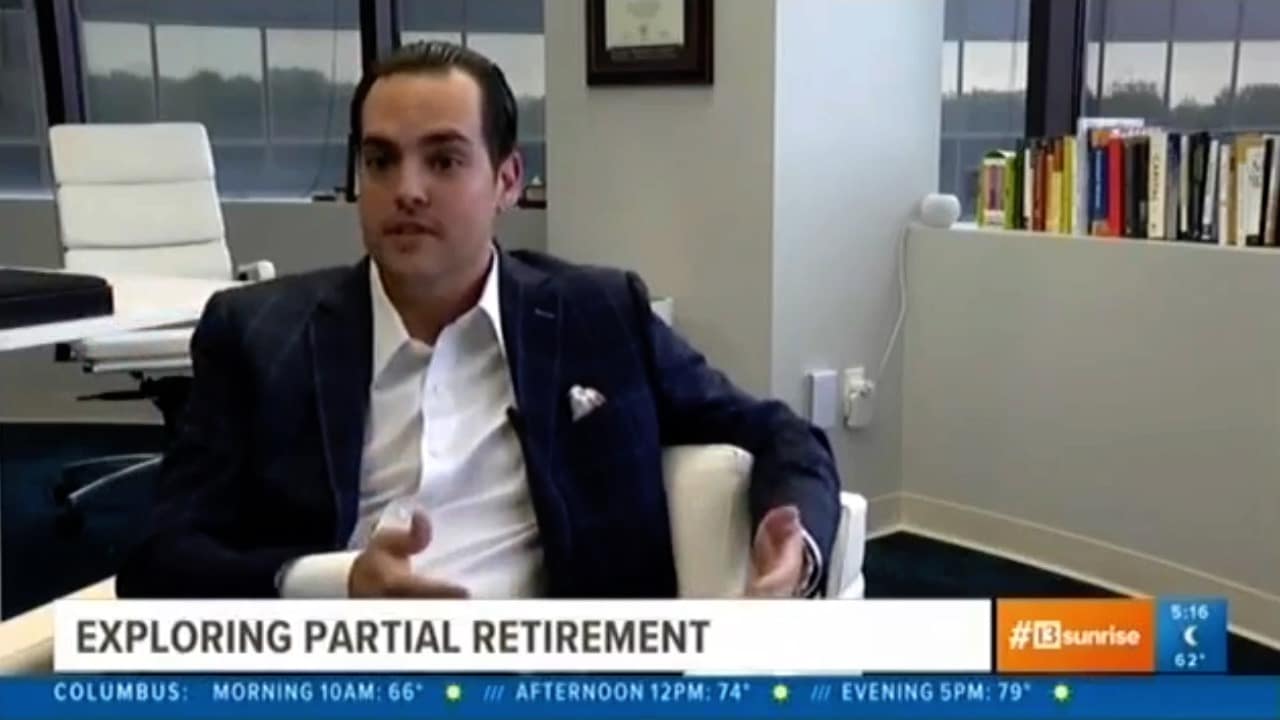59 1/2: Why is this age so important? That age marks a turning point of sorts in your life—on a number of fronts. In particular, the Internal Revenue Service (IRS) allows you to make withdrawals from your retirement account without incurring a penalty. It has also been nearly a decade since you were granted the right to make “catch-up contributions” to your IRA.1
In roughly 30 months, you’ll be eligible to claim Social Security benefits. You’re about 66 months away from Medicare eligibility.
In this report, we explore your retirement choices, your healthcare concerns, and how to move vibrantly into those golden years. We also turn back the clock to take a quick look at how history may have shaped your outlook. Keep in mind that this
BUILDING YOUR RETIREMENT SAVINGS
Some research suggests you should have at least $1 million in retirement savings to get you comfortably through a 30-year retirement.2
Some retirement savers say there’s a 45% chance they expect to run out of money sometime during their retirement. In fact, 22% of baby boomers (those born between 1946 and 1964) report having less than $25,000 in retirement savings.3,4
If your retirement savings are not quite up to par, the IRS provides a catch-up clause that applies to people over the age of 50.5
Older employees may exceed the IRS’s standard, elective deferral ($19,500 in 2020) to their employees’ workplace-based retirement savings plans. Elective deferrals are contributions to retirement plans by the employer at the employee’s request. Deferrals apply to 401(k)s, 401(b)s, and other retirement plans.6,7
The catch-up amount for 2020 is $6,500 and applies to the following plans:
Deferrals to retirement plans must exceed the standard $19,500 limit (2020) to be counted as catch-up contributions.8
You may make annual catch-up contributions if the amount is less than:
- The catch-up contribution dollar limit, or
- The excess of the participant’s compensation over the elective deferral contributions that are not catch-up contributions.8
Catch-up contributions are $3,000 for Savings Incentive Match Plan for Employee Individual Retirement Account (SIMPLE IRA) plans. These plans are often used by small business owners.8
You may make $1,000 in catch-up contributions to your traditional or Roth IRA in 2020. To qualify for the tax-free and penalty-free withdrawal of earnings, Roth 401(k) distributions must meet a five-year.
holding requirement and occur after age 59½. Tax-free and penalty-free withdrawals can also be taken under certain other circumstances, such as result of the owner’s death. Employer match is pretax and not distributed tax-free during retirement.8
Under the Setting Every Community Up for Retirement Enhancement (SECURE) Act, once you reach age 72, you must begin taking required minimum distributions from your 401(k), 403(b), 457(b), or other defined contribution plans in most circumstances. Withdrawals from your 401(k) or other defined
contribution plans are taxed as ordinary income and, if taken before age 59½, may be subject to a 10% federal income tax penalty.9 Also, under the SECURE Act, once you reach age 72, you must begin taking required minimum distributions from a SIMPLE IRA in most circumstances. Withdrawals from SIMPLE IRAs and traditional IRAs are taxed as ordinary income and, if taken before age 59½, may be subject to a 10% federal income tax penalty.9
Getting Financial Guidance
You’re approaching a major turning point in your life. A financial professional can help you discover wise solutions and develop smart retirement strategies for a fulfilling and exciting future. We can help you analyze your financial situation to shape the life you envision.
We know now more than ever that people in the great state of Indiana need a financial advisor they can trust. To help, Crown Haven Wealth Advisors is offering a limited number of spots for our free financial planning sessions.
Our team is happy to meet with you online or in our offices in Carmel, IN. Stop stressing about money or how you will pay for the retirement you always wanted. You deserve a secure financial future. Click here to schedule a complimentary relationship visit or call (317) 564-4691 to speak with one of our specialists.
Note: Keep in mind that this article is for informational purposes only. It is not a replacement for real-life guidance. Also, tax rules are constantly changing, and there is no guarantee that the tax landscape will remain the same in the years ahead. Please consider working with a financial professional before implementing or modifying a retirement strategy.
Footnotes and disclosures:
Information current as of September 15, 2020.
Investing involves risk including the potential loss of principal.
No investment strategy can guarantee a profit or protect against loss
in periods of declining values.
These are the views of FMG Suite, and not necessarily those of the
named representative, Broker/Dealer or Registered Investment
Advisor, and should not be construed as investment advice. Neither
the named representative nor the named Broker/Dealer or Registered
Investment Advisor gives tax or legal advice. All information is
believed to be from reliable sources; however, we make no
representation as to its completeness or accuracy. Please consult
your financial professional for further information.
Sources:
1. USNews.com, February 12, 2020
2. AARP.org, September 15, 2020
3. CNBC.com, June 28, 2019
4. NorthwesternMutual.com, December 31, 2019
5. TheBalance.com, January 15, 2020
6. IRS.gov, November 22, 2019
7. IRS.gov, December 20, 2019
8. IRS.gov, January 9, 2020
9. IRS.gov, September 23, 2020












